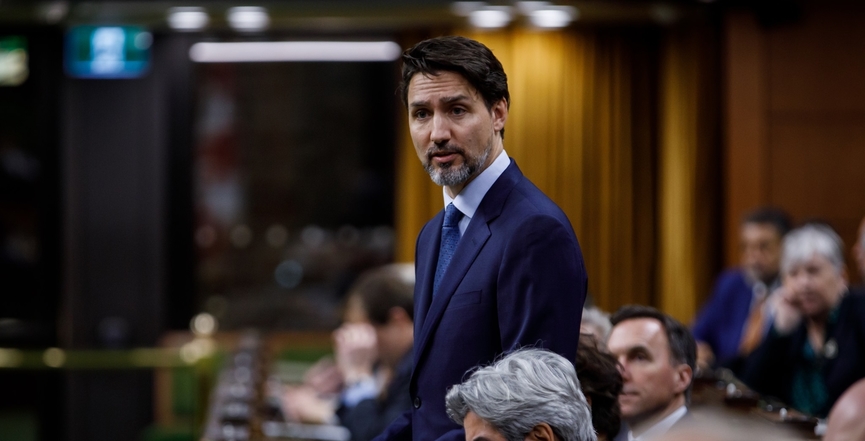Why is Prime Minister Trudeau refusing to stop Meng Wanzhou’s extradition? This is the question I have been asking myself over and over since Wanzhou’s arrest in Vancouver by the Canadian authorities for an extradition in December 2018.
As a clear retaliation to this act of aggression taken by Canada, the Chinese government arrested two Canadian citizens, Michael Kovrig and Michael Spavor, and accused them of spying.
My objective here isn’t to defend the wrong retaliatory actions taken by the Chinese government, but instead to understand what the Canadian government was thinking when it accepted the extradition file from the U.S. authorities, knowing that President Donald Trump is personally on a mission to attack Iran and that the charges against Meng Wanzhou are mainly related to the embargo against Iran — and thus “punishing” whoever deals with Iran.
(Wanzhou is accused of lying to HSBC in 2013 about Huawei’s relationship with Skycom, a company accused of violating U.S. economic sanctions against Iran.)
Who is Canada helping with this politically motivated arrest? Is it its own political and economic interests, which I assume should always come first? Or is it rather the U.S. president or other American political interests? I still examine and re-examine these questions and still don’t find any smart side to the arrest.
A few weeks after the arrests of the two Canadians, John McCallum, a long-respected politician who was the former Canadian ambassador to China spoke very candidly — and in my view, very reasonably — that in order to obtain the release of the two Canadians, Wanzhou should be released.
Unfortunately, some media and political parties turned this into a political drama to score ideological points against China. The case was turned into a hockey game of Canada versus China — and obviously Canada needed to score goals.
McCallum was immediately criticized. He tried to back off, but it was too late. He was scapegoated for the pride of the country and lost his job. It was a big mistake by Prime Minister Trudeau, and it showed that a stubborn position in treating this case can make things even worse.
It doesn’t take a PhD in political sciences to understand that this case has been from its inception a political case. It has never been a case about law and the prevalence of the judicial system.
Wanzhou isn’t a random Chinese citizen arrested for a benign fraud. In terms of her reputation and stature, Wanzhou is comparable to a Bill Gates. Would the U.S. or Canada accept the Microsoft founder or his wife being arrested by China for suspicion of fraud in the same manner as Wanzhou, and consider it an ordinary legal case? Of course not!
In fact, many would likely be calling for politicians to intervene.
A few months ago, 19 prominent Canadians, including former justice minister Allan Rock and former Supreme Court justice Louise Arbour, wrote a letter to Prime Minister Justin Trudeau calling him to stop the extradition of Wanzhou.
The authors of the letter made it very clear that there is no harm in invoking Canadian laws. This is not called political interference; it is using whatever means to solve a problem.
And a problem, there is. The two arrested Canadians are caught in the middle of this political quagmire. Of course, this is a wrong approach and China shouldn’t keep these two Canadians in prison. Nevertheless, we have a Canadian government that accepts playing the dirty game initiated by the American authorities.
Are we Canadians supposed to apply the “rule of law” by proxy? If Wanzhou has done wrong, why did the U.S. ask Canada to arrest her? In all this, what did Canada gain? Nothing good — not even a peace break in the trade war launched by President Trump against Canada.
And not even strong support in diplomatic efforts to release the two Canadians. Nothing!
This is why it is time for Trudeau to take the right decision and stop the extradition process for Wanzhou. It is the only way to obtain the release of the two Canadians.
Why is Trudeau waiting to move forward? Is it fear of backlash from the opposition? Or is it fear of another failure in managing a case that would show the weakness of the Canadian government?
First of all, politics shouldn’t be done at the expense of the lives and well-being of ordinary Canadians. All Canadians should speak with the same voice when one of them is arrested unjustly by a foreign government. Opposition parties should help the government in choosing the best solution.
Second, Canada has already lost a lot of political blood in this case. By stopping the extradition of Wanzhou, Trudeau would put an end to the crisis.
Yes, Canada lost face in front of China, but diplomatic relations can be mended. However, the damage done to the lives of the Canadians who were arrested by China cannot be repaired, and worse, they could be harmed.
Trudeau should correct a wrong with a right: stop the extradition of Wanzhou and open the doors for the release of Kovrig and Spavor.
Monia Mazigh was born and raised in Tunisia and immigrated to Canada in 1991. Mazigh was catapulted onto the public stage in 2002 when her husband, Maher Arar, was deported to Syria where he was tortured and held without charge for over a year. She campaigned tirelessly for his release. Mazigh holds a PhD in finance from McGill University. In 2008, she published a memoir, Hope and Despair, about her pursuit of justice, and recently, a novel about Muslim women, Mirrors and Mirages. In 2017, she published Hope Has Two Daughters, a novel about the Arab Spring. You can follow her on Twitter @MoniaMazigh or on her blog.
Image: Justin Trudeau/Facebook



